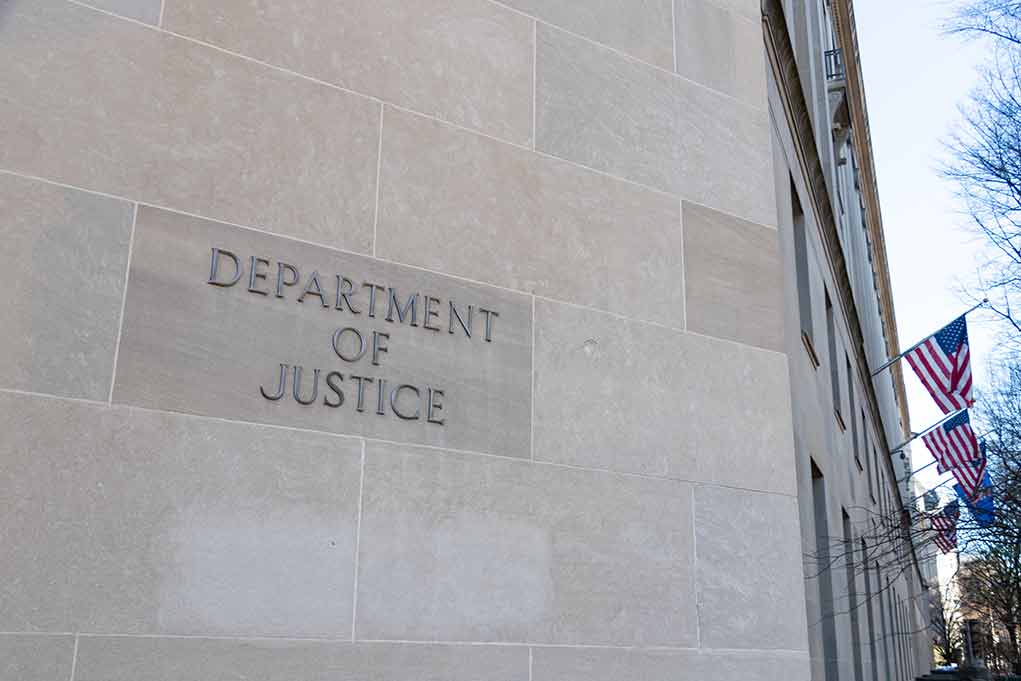
The Justice Department has taken a major step to block Hewlett Packard Enterprise’s $14 billion acquisition of Juniper Networks, marking the first major antitrust action under President Trump’s second term.
Key Takeaways
- The DOJ has filed a lawsuit to block HPE’s $14 billion acquisition of Juniper Networks.
- This action represents the first major antitrust move in President Trump’s second term.
- The DOJ argues the merger would reduce competition and potentially lead to higher prices.
- HPE and Juniper Networks oppose the lawsuit, claiming consumer benefits from combined technologies.
- The intervention surprises many who expected a softer antitrust approach from the Trump administration.
DOJ’s Unexpected Move Against Tech Giants
The Department of Justice has initiated legal proceedings to obstruct a $14 billion acquisition deal between Hewlett Packard Enterprise (HPE) and Juniper Networks. This action marks the first significant antitrust intervention during President Donald Trump’s second term, defying expectations of a more lenient approach to corporate mergers.
The DOJ’s complaint paints a picture of HPE as a struggling competitor against Juniper, a smaller but rapidly growing rival in the wireless networking market. At the heart of the government’s concern is the potential consolidation of the market, which would leave two companies controlling over 70% of the share, with Cisco maintaining its leadership position.
Antitrust Concerns and Market Competition
The Justice Department’s lawsuit emphasizes the critical nature of competition in the wireless network industry, particularly for sectors like healthcare and small businesses. According to the DOJ, the proposed merger “risks substantially lessening competition in a critically important technology market.”
This stance aligns with broader efforts to maintain market competitiveness and prevent monopolistic practices in the tech sector. The move suggests a surprising continuity in antitrust enforcement between the Biden and Trump administrations, despite initial expectations from some of a more merger-friendly approach under Trump.
Corporate Response and Market Implications
HPE and Juniper Networks have vowed to contest the DOJ’s decision, arguing that their merger would benefit consumers by combining their technological strengths. The companies stated, “We will vigorously defend against the Department of Justice’s overreaching interpretation of antitrust laws and will demonstrate how this transaction will provide customers with greater innovation and choice, positively change the dynamics in the networking market.”
The outcome of this case could have far-reaching implications for future merger assessments, especially in the rapidly evolving technology sector. It highlights the ongoing challenge of balancing corporate interests with the maintenance of a competitive marketplace, an issue that appears to transcend party lines in Washington.
Broader Implications for Antitrust Policy
This case represents more than just a single merger block; it signals a potential shift in how antitrust policies are applied across administrations. The Trump administration’s decision to pursue this action aligns unexpectedly with the Biden administration’s previous scrutiny of corporate consolidations. This continuity in approach suggests that concerns over market concentration and competition in the tech sector may be a bipartisan issue moving forward.
As the legal battle unfolds, it will be crucial to monitor how this case shapes future antitrust enforcement and influences corporate strategy in the tech industry. The DOJ’s action against HPE and Juniper Networks may set a precedent for how similar mergers and acquisitions are evaluated, potentially ushering in a new era of heightened scrutiny for tech giants and their market-shaping deals.
Sources
- The DOJ wants to block HPE’s $14 billion merger deal
- Justice Department sues to block $14 billion Juniper buyout by Hewlett Packard Enterprise
- U.S. Sues to Block Tech Deal in First Antitrust Action of Trump Term




